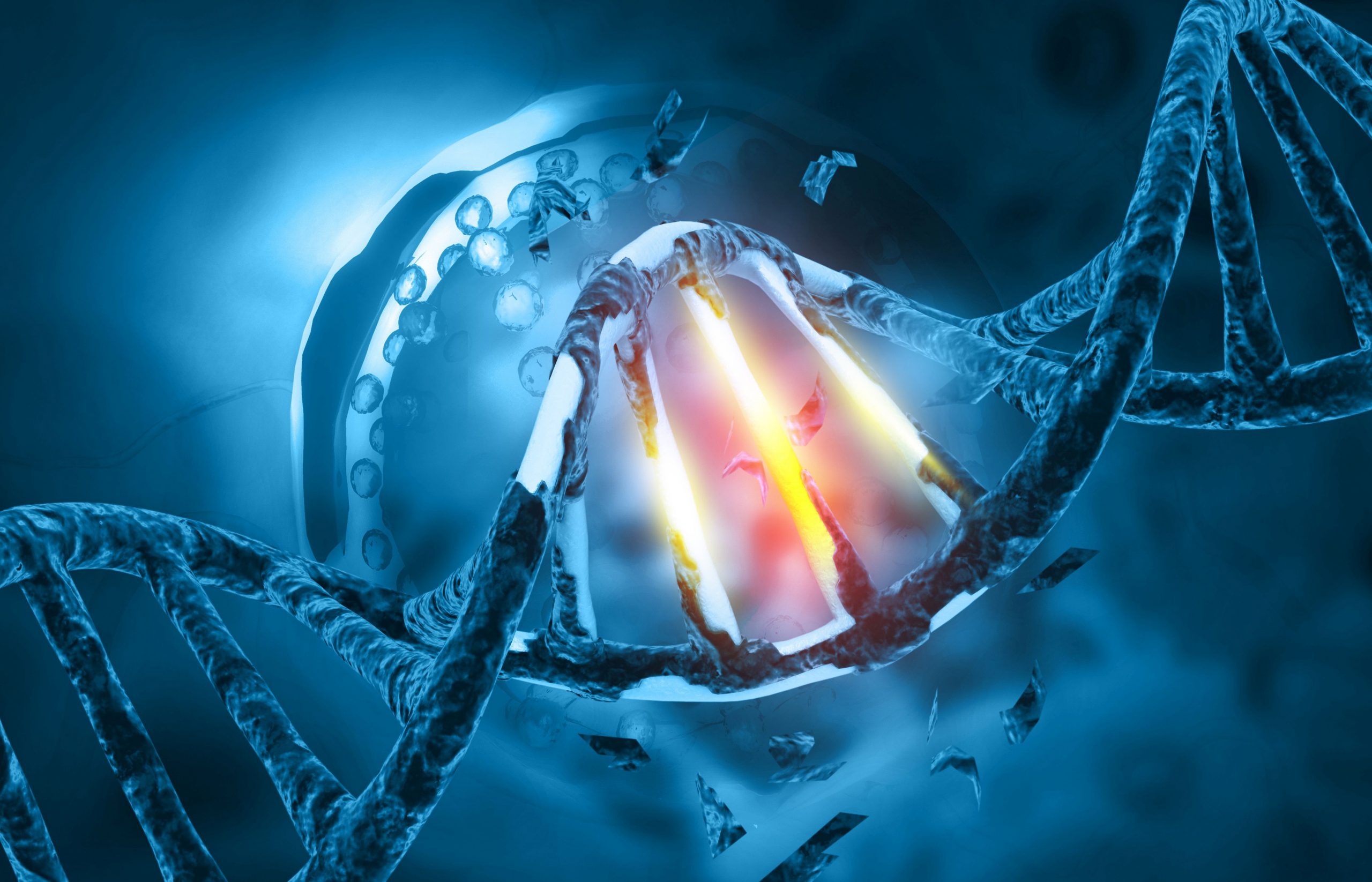Genetic testing panels for men and women. Includes analysis of genes whose mutation may contribute to fertility problems.
Get your genes tested, increase your chance of pregnancy !


Infertility tests

A panel of tests to see if defects in genetic material are the cause of infertility.
Even a small and completely inconspicuous change in genetic material can make it difficult to conceive a child. Statistically, in 15-20% of couples infertility is caused precisely by a genetic factor lying either on the side of the woman or on the side of the man. Genetic infertility can manifest itself in very different ways, such as reduced ovarian reserve in the female partner or low semen parameters in the partner. The influence of genetic factors on fertility can also be evidenced by recurrent miscarriages or unsuccessful attempts to conceive by IVF.
Genetic testing is therefore a key part of diagnosing the causes of partner infertility. By testing individual genes, we can not only find out the direct cause of the lack of offspring, but also increase the chance of getting pregnant and giving birth to a healthy child.
At theGyncentrum clinic, we have developed genetic testing panels dedicated to women and men. They include analysis of those genes whose mutation may contribute to infertility in both sexes. These tests are FertiGEN men and FertiGEN women.

Where can genetic infertility tests be performed?
You will perform infertility tests in all Gyncentrum Clinics in Katowice, Krakow, Bielsko-Biala, Czestochowa, Lublin, Poznan and Warsaw. And soon also in Wrocław. You are welcome!
Gyncentrum Wrocław Clinic
Opening soon!
Who should undergo genetic diagnosis?
Most patients do not know that they have defective genes. They usually find out only when, after months (sometimes years) of unsuccessful efforts to have offspring, they finally get to an infertility clinic. There they perform genetic tests that reveal abnormalities in the DNA material. However, there are some indications that may suggest that problems with getting pregnant have their origin in genetics, and in such a case it is worth considering genetic diagnostics. Most often, it begins with a karyotype test. It allows to verify the number and structure of individual chromosomes. Abnormal karyotype can be responsible for problems in obtaining a pregnancy, miscarriages and genetic diseases in the offspring.
Modern genetics, however, offers many more possibilities. Thanks to Next Generation Sequencing (NGS) technology, we are able to examine up to tens of thousands of genes in just a few minutes. This opens up completely new perspectives in the field of infertility diagnosis. FertiGEN men and FErtiGEN woman infertility tests use just this rapid sequencing technology.
Get tested for genetic infertility factors if:
- You have abnormal semen parameters
- You have been diagnosed with abnormal testicular development
- You and your partner have been trying unsuccessfully for a child for a long time
- Your partner has experienced several miscarriages
Get tested for genetic infertility factors if:
- You and your partner have been trying unsuccessfully for a child for a long time
- You are struggling with a primary absence of menstruation
- You have experienced multiple miscarriages
- You have been diagnosed with premature cessation of ovarian function
FertiGEN men – test for genetic infertility in men
The FertiGEN men’s test examines about 80 genes for mutations that may be responsible for infertility in men. Defects in any of them can impair the function of the testes or epididymides, interfere with their development, or affect the process of spermatogenesis (sperm formation) itself. Knowledge of the occurrence of infertility with a genetic basis allows you to take appropriate steps to increase the chance of obtaining a pregnancy and giving birth to a healthy child.
FertiGEN men infertility panel is designed to detect mutationsin, among others.in genes:
ADGRG2, CCDC40, DMRT1, SRY, GATA4, HS6ST1, LHCGR, AMH, AMHR2, ANOS1, APOA1, AR, AURKC, BLM, BNC2, CCDC141, CCDC39, CDC14A, CEP290, CFAP251, CFAP43, CFAP44, CFAP69, CFTR, CHD7, CYP11A1, CYP11B1, CYP17A1, CYP19A1, CYP21A2, DAZL, DCC, DNAAF11, DNAAF2, DNAAF4, DNAAF6, DNAH1, DPY19L2, FANCA, FANCM, FBXO43, FGF8, FGFR1, FSHB, FSHR, GNRH1, GNRHR, HSD17B3, HSD3B2, HSF2, IGF2, IL17RD, INSL3, KISS1, KLHL10, LHB, MAMLD1, NLRP3, NR0B1, NR5A1, PKD1, PLCZ1, PLXNA1, PMFBP1, PROK2, PROKR2, RSPO1, SEMA3A, SLC29A3. A total of 87 genes in which the presence of mutations may be responsible for male infertility.

FertiGEN woman – test for genetic infertility in women
The FertiGEN women’s test examines some 150 genes for mutations present in them that can lead to infertility in women. Defects in any of them can, for example, lead to primary ovarian failure, premature cessation of ovarian function, or delayed sexual maturation. Awareness that problems with getting pregnant have a genetic basis allows you to take appropriate measures towards the desired parenthood.
The FertiGEN woman infertility panel is designed to detect mutations in, among others. in genes:
AIRE, DCAF17, FIGLA, SOX8, SPRY4, WNT4, AARS2, AMH, AMHR2, ANOS1, ANXA5, AR, ATG7, ATG9A, ATM, AXL, BLM, BMP15, BRCA2, BTG4, BUB1B, C11orf80, CCDC141, CCDC39, CHD7, CLPP, CPEB1, CYP17A1, CYP21A2, DAZL, DDX11, DIAPH2, DUSP6, EIF2B1, EIF2B2, EIF2B3, EIF2B4, EIF2B5, EIF4ENIF1, EMX2, ERAL1, ERCC2, ERCC3, ERCC4, ERCC6, ESR1, ESR2, F2, F5, FANCA, FBXO43, FEZF1, FGF17, FGF8, FGFR1, FLRT3, FOXL2, FSHB, FSHR, GALT, GATA4, GDF9, GNRH1, GNRHR, H6PD. In total, there are about 150 genes whose mutation can cause infertility in women.

Get tested for genetic causes of infertility
Increase your chances of pregnancy
Read more
Are you interested in genetic infertility testing?
Make an appointment for a consultation with a Gyncentrum specialist.
Thank you for filling out the form
We will soon contact you to schedule a convenient consultation date.
Are you interested in the FertiGEN woman study?
Fill out the form to receive more information.
Are you interested in the FertiGEN men study?





